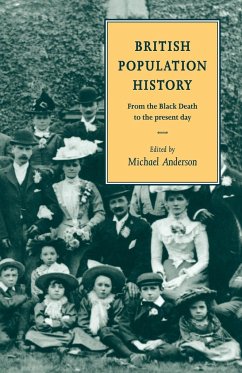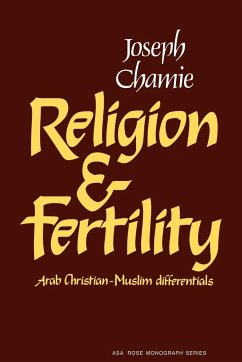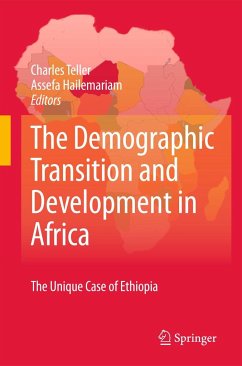
Situating Fertility
Anthropology and Demographic Inquiry
Herausgeber: Greenhalgh, Susan; Susan, Greenhalgh

PAYBACK Punkte
44 °P sammeln!
In this collection of essays ten anthropologists and two historians address the world-wide pattern of falling birth rates. Fertility has commonly been treated from a specialized demographic perspective, but there is today widespread dissatisfaction with conventional demographic approaches, which are criticized for neglecting the cultural, social, and political forces that affect reproductive behavior. For their part, anthropologists have only recently begun to apply their characteristic approaches to the study of reproduction. Drawing on new ethnographic and historical research and on a variet...
In this collection of essays ten anthropologists and two historians address the world-wide pattern of falling birth rates. Fertility has commonly been treated from a specialized demographic perspective, but there is today widespread dissatisfaction with conventional demographic approaches, which are criticized for neglecting the cultural, social, and political forces that affect reproductive behavior. For their part, anthropologists have only recently begun to apply their characteristic approaches to the study of reproduction. Drawing on new ethnographic and historical research and on a variety of theoretical approaches, the contributors to this book indicate some of the ways in which demography might take into account historical processes, political forces, and cultural conceptions.
Table of contents:
1. Anthropology theorizes reproduction: integrating practice, political economic, and feminist perspectives; 2. Political economic and cultural explanations of demographic behavior; 3. Agency and fertility: for an ethnography of practice; 4. Invisible cultures: poor women's networks and reproductive strategies in nineteenth-century Paris; 5. The power of names: illegitimacy in a Muslim community in Cote d'Ivoire; 6. Marginal members: the problem of children of previous unions in Mende households in Sierra Leone; 7. Women's empowerment and fertility decline in western Kenya; 8. High fertility and poverty in Sicily: beyond the culture versus rationality debate; 9. History, marriage politics, and demographic events in the central Himalaya; 10. Economics 1, Culture 0: fertility change and differences in the northwest Balkans, 1700-1900.
In this collection of essays, which draws on new ethnographic and historical research and a variety of theoretical approaches, ten anthropologists and two historians indicate some of the ways in which demography might take into account historical processes, political forces, and cultural conceptions.
A collection of essays outlining new anthropological approaches to the issue of fertility.
Table of contents:
1. Anthropology theorizes reproduction: integrating practice, political economic, and feminist perspectives; 2. Political economic and cultural explanations of demographic behavior; 3. Agency and fertility: for an ethnography of practice; 4. Invisible cultures: poor women's networks and reproductive strategies in nineteenth-century Paris; 5. The power of names: illegitimacy in a Muslim community in Cote d'Ivoire; 6. Marginal members: the problem of children of previous unions in Mende households in Sierra Leone; 7. Women's empowerment and fertility decline in western Kenya; 8. High fertility and poverty in Sicily: beyond the culture versus rationality debate; 9. History, marriage politics, and demographic events in the central Himalaya; 10. Economics 1, Culture 0: fertility change and differences in the northwest Balkans, 1700-1900.
In this collection of essays, which draws on new ethnographic and historical research and a variety of theoretical approaches, ten anthropologists and two historians indicate some of the ways in which demography might take into account historical processes, political forces, and cultural conceptions.
A collection of essays outlining new anthropological approaches to the issue of fertility.














